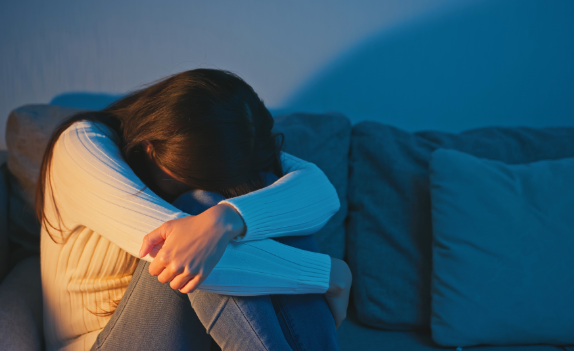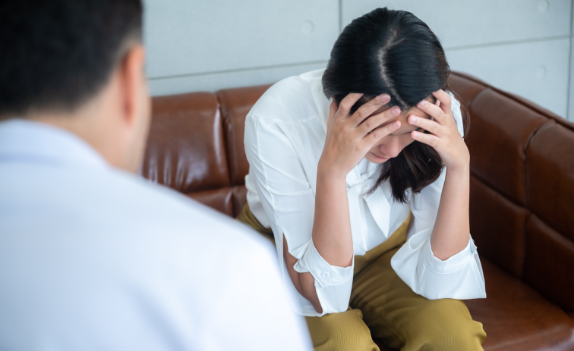Bipolar Counseling
Bipolar disorder is a mental health condition that sends sufferers on an emotional rollercoaster. It’s like a seesaw of extreme mood swings, with two distinct and contrasting phases: mania and depression.
During the manic phase, individuals experience an elevated or irritable mood, accompanied by a surge of energy and racing thoughts. The depressive phase plunges them into a deep abyss of low mood. Interests and pleasures become dull, and a pervasive sense of worthlessness or guilt takes hold.
Everyday life can feel like an impossible challenge. Sleep patterns become erratic, appetite may fluctuate, and behavior can become unpredictable. Bipolar disorder can affect every element of a person’s life. People with bipolar illness can lead lives and retain improved emotional control with the proper care and support.
Rego Park provides mental health services to individuals in the Bronx, New York City. They are a certified mental health counseling provider. They have qualified staff providing evidence-based treatment approaches like cognitive behavioral therapy and trauma-informed care and have regular supervision from a licensed mental health professional. With this certification, Rego Park can bill insurance companies for services provided to patients and receive reimbursement, making mental healthcare more accessible to those in the Bronx community.
Request A Call From Us
Signs And Symptoms Of Bipolar
Depending on the kind and severity of the ailment, the signs and symptoms of bipolar disorder can vary. However, some frequent symptoms include:
1. Mania
During a manic episode, a person may experience:
- Feeling extremely happy or euphoric
- Having an inflated sense of self-esteem or grandiosity
- Feeling restless or agitated
- Having racing thoughts or difficulty concentrating
- Sleeping very little without feeling tired
2. Hypomania
This milder mania may not impede everyday functioning. These signs include:
- Feeling more energetic or productive than usual
- Being more talkative or social than usual
- Having an increased interest in activities or hobbies
- Feeling more confident or creative than usual


3. Depression
During a depressive episode, a person may experience:
- Feeling sad, hopeless, or empty
- Insomnia or excessive sleep
- Fatigue
- Difficulties in concentration
- Guilty feelings
- Suicidal thoughts
4. Mixed Episodes
Mixed episodes involve symptoms of both mania and depression simultaneously. A person may feel agitated and restless while also feeling sad and hopeless. Other symptoms are:
- Changes in appetite or weight
- Physical symptoms such as headaches or stomach aches
- Difficulty with memory or concentration
- Substance use or addiction issues
- Relationship problems or difficulty maintaining employment.
If you are unsure, mental health therapy for bipolar disorder helps recognize the warning signs and symptoms of the condition. If someone exhibits signs of bipolar illness, a comprehensive evaluation by a mental health specialist might reveal this. These specialists educate people about the condition and assist them in creating symptom-management coping mechanisms. People with bipolar illness might benefit from their understanding of the triggers and warning symptoms.
Types of Bipolar Disorder
There are several varieties of bipolar illness, and they can present in various ways; therefore, it is not a disease that can be treated in the same manner for everyone. Bipolar I and bipolar II are the two primary subtypes of the condition, with manic episodes characterizing the former and hypomanic episodes characterizing the latter. Creating a successful treatment plan requires understanding the type of bipolar illness the patient has.
1. Bipolar I Disorder
Bipolar I Disorder is defined by its unmistakable manic episodes, which persist for a minimum of 7 days or become so severe that immediate hospitalization becomes necessary. Depressive episodes, marked by a significant loss of interest or pleasure that lasts for at least two weeks, occur alongside these highs. Genes, the environment, and one’s lifestyle can all play a role in bipolar I illness.
There are proactive steps individuals can take to sidestep or mitigate the impact of bipolar I disorder. It includes regular exercise, a balanced diet, enough sleep, and efficient stress management. When manic or depressive episodes disrupt one’s life, seeking professional help is paramount.
2. Bipolar II Disorder
A distinct rhythm of depressive and hypomanic episodes marks bipolar II Disorder. Hypomania is less intense than full-blown mania but involves elevated mood and increased energy. Unlike the more intense bipolar I disorder, the highs in bipolar II are less severe, manifesting as hypomanic episodes lasting at least four days.
Like many mental health diseases, the etiology of bipolar II illness is influenced by genetic predisposition, environmental variables, and lifestyle choices. While the precise cause remains veiled, there are proactive steps individuals can take to mitigate the impact of bipolar II disorder. Regular exercise, a balanced diet, sufficient sleep, and effective stress management protect against this condition’s emotional fluctuations. When depression and hypomania disrupt one’s life, reaching out for professional help is crucial.
3. Cyclothymic Disorder
Cyclothymic Disorder, a lesser-known member of the bipolar disorder family, presents as prolonged and subtle mood swings. Individuals experience recurring episodes of hypomanic and depressive symptoms that persist for at least two years, with a shorter duration required for diagnosis in children and adolescents—one year. The mood swings in cyclothymia are less severe than in bipolar I and II but are chronic and can affect daily functioning.
Because of the many interactions between heredity, environment, and lifestyle, the exact origin of cyclothymic disease is yet unknown. Although the specific reason is still unknown, there are actions people may take to lessen its effects.
When subtle mood swings emerge and disrupt daily life, seeking treatment from mental health professionals can help. Bipolar therapy and, in some cases, medication can provide the tools to navigate the often challenging emotional terrain of cyclothymic disorder.
4.Other Specified and Unspecified Bipolar and Related Disorders
“Other Specified and Unspecified Bipolar and Related Disorders” encompass various conditions that defy easy classification. They are characterized by symptoms that, while indicative of a mood disorder, do not fit the specific criteria for the more well-defined types of bipolar disorder.
Like their better-understood counterparts, the origins of these disorders comprise genetic factors, environmental influences, and lifestyle choices.
Individuals can take proactive steps to mitigate the risk or manage the impact of these conditions. Regular exercise, a balanced diet, adequate sleep, and effective stress management protect against these disorders’ uncertainties.
Mental health specialists can assist people in dealing with these less well-defined bipolar illnesses and associated conditions by offering treatment.
How to Treat Bipolar
The course of treatment for bipolar disorder may vary based on the individual’s symptoms and requirements, but it often entails a mix of medication and therapy for bipolar. Teletherapy or inpatient therapy may be suggested as part of a thorough treatment strategy.
Counseling Methods
A thorough treatment program for those with bipolar illness may include counseling. The following is a list of some efficient bipolar counseling techniques for the management of bipolar disorder:
- Cognitive Behavioral Therapy (CBT): CBT is a well-known treatment strategy that can help people with bipolar illness. It emphasizes recognizing and combating harmful thought patterns and behaviors that cause mood swings and other bipolar illness symptoms. CBT encourages self-awareness and teaches coping mechanisms to assist patients in better managing their illness.
- Dialectical Behavior Therapy (DBT): This evidence-based treatment can benefit people with bipolar illness. It emphasizes discomfort tolerance, emotional control, and mindfulness. These abilities are crucial for controlling impulsivity, mood fluctuations, and the difficulties in establishing and keeping enduring partnerships.
- Group Psychoeducation: Group psychoeducation is scheduled sessions where people with bipolar disorder and their families learn about the illness, its symptoms, available treatments, and methods for managing it. With peer support and information in this format, bipolar illness sufferers may feel more empowered and less alone.
Depending on the unique requirements and preferences of the bipolar patient, these counseling techniques may be employed or in combination.
Medication
Medication is the cornerstone of bipolar illness treatment. The specific medications chosen can depend on the type and severity of bipolar disorder and individual factors.
Mood Stabilizers are often the first-line treatment for bipolar disorder. Joint mood stabilizers include lithium, valproate (divalproex sodium), and lamotrigine. Antipsychotic medications can be used to manage symptoms during acute manic or mixed episodes. Sometimes, antidepressant medications may be prescribed to help manage depressive symptoms.
However, mood stabilizers often use these to avoid triggering manic episodes. Antianxiety Medications, such as benzodiazepines, may manage anxiety or agitation during manic or hypomanic episodes. Medication management for bipolar disorder involves regular check-ins with a healthcare provider to monitor progress and adjust treatments as necessary.
Lifestyle/At-Home Changes
Modifying one’s way of life is essential for controlling bipolar disorder’s symptoms. Here are several essential lifestyle adjustments that may be helpful.
- Adequate sleep is essential for mood stability. Disrupted sleep patterns can trigger manic or depressive episodes. Establishing a regular sleep schedule and practicing good sleep hygiene can be very helpful.
- Mood and general well-being may be impacted by proper diet. Some people with bipolar disorder also discover that controlling blood sugar levels by avoiding excess sugar and processed carbs might help them manage their emotions.
- Physical activity has numerous benefits for mental health. Exercise releases endorphins, which are natural mood lifters. Learning and using stress-reduction methods like yoga, deep breathing exercises, or mindfulness can also help with stress management and mood stabilization.
These lifestyle changes should complement, not replace, medical treatment and counseling for bipolar.
Teletherapy vs. Inpatient Therapy
Teletherapy, or online therapy or telepsychiatry, involves receiving mental health services through videoconferencing or phone calls. It can benefit people who find it challenging to obtain in-person treatments because of hurdles like distance, mobility challenges, or other constraints.
Inpatient therapy, however, involves hospitalization in a psychiatric facility for intensive treatment. Usually, only those with severe bipolar illness symptoms who pose a threat to themselves or others should get this form of therapy.
When it comes to treating bipolar disorder, both teletherapy and inpatient therapy can be effective options depending on the individual’s needs and severity of symptoms. Many psychiatric facilities now offer teletherapy for ongoing support and treatment after discharge.

Bipolar Therapy with Rego Park
People looking for bipolar counseling can discover various options catered to their requirements in Rego Park. It recognizes the complex nature of bipolar illness and provides a wide range of services to meet each person’s and their family’s distinctive requirements. Support, comprehension, and evidence-based treatment promote healing and well-being. With a professional therapist who specializes in bipolar disorder, you may get one-on-one mental health counseling. These consultations provide you with individualized guidance and treatment plans for your problem. Rego Park also provides group therapy sessions where patients interact with people in a similar situation, while family therapy sessions assist your loved ones in better comprehending and managing the particular dynamics of this disease.
Make the active choice to seek help today and let Rego Park Counseling start you on a path to great mental health. Fill out our contact form below or call us now at (718) 459-2558.
Types of Therapy Offered
Rego Park Counseling offers different types of bipolar therapy that are appropriate for various types of people and settings. Find out which kinds of therapy are recommended for you.
Individual Therapy
Individual bipolar therapy enables you and your counselor to develop individualized treatment plans that are based on his or her professional assessment. Our personalized programs are fine-tuned to your specific mental health needs and goals as a patient. We recommend individual therapy for everyone since healing must begin with oneself.
Family Therapy
Family therapy can improve the dynamics among the various family members of your family. It can also facilitate the gradual mending of relationships that may have been broken or damaged because of mental health issues. We recommend family therapy for you if your family are interested in supporting you throughout the process and you feel mutually inclined.
Request a Call Call Now Learn More
Group Therapy
Group therapy makes it possible for a group of people who are connected for personal or professional reasons to encourage and guide each other during the recovery period. We recommend group therapy for you if you feel more confident about tackling mental health challenges with the aid of a support group. Finally, a diverse combination of all forms of therapy may serve you best.
